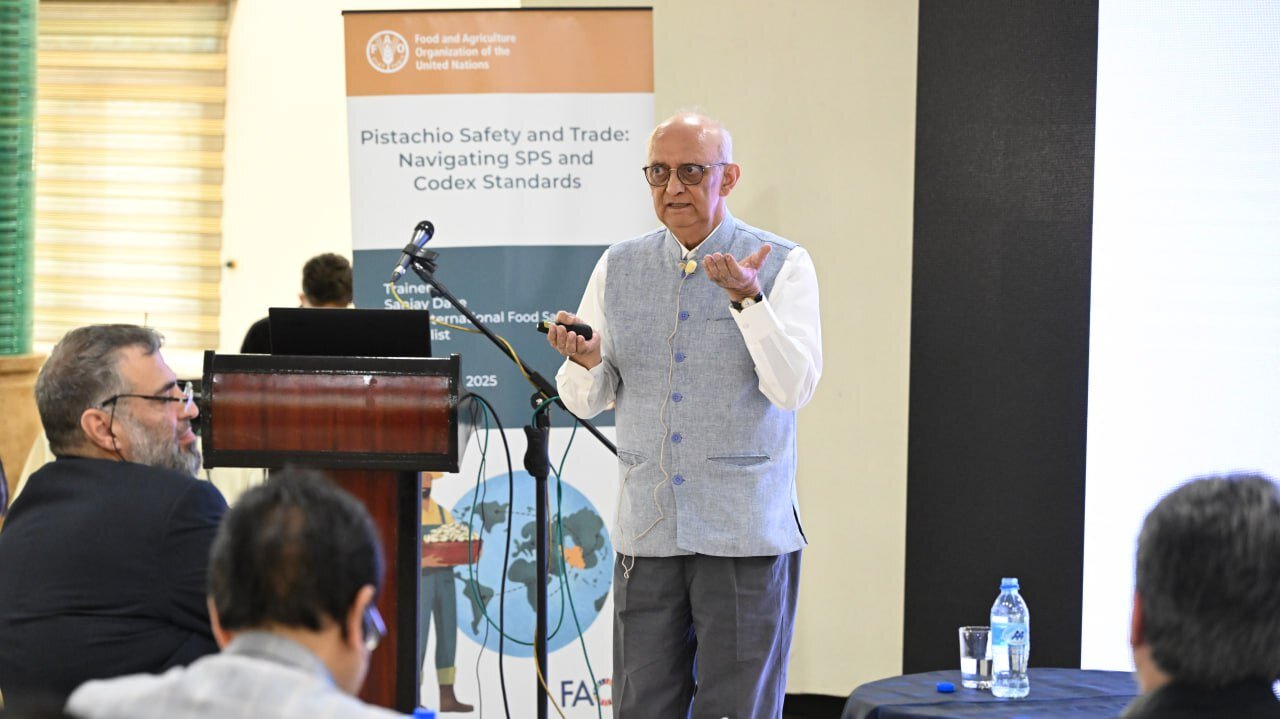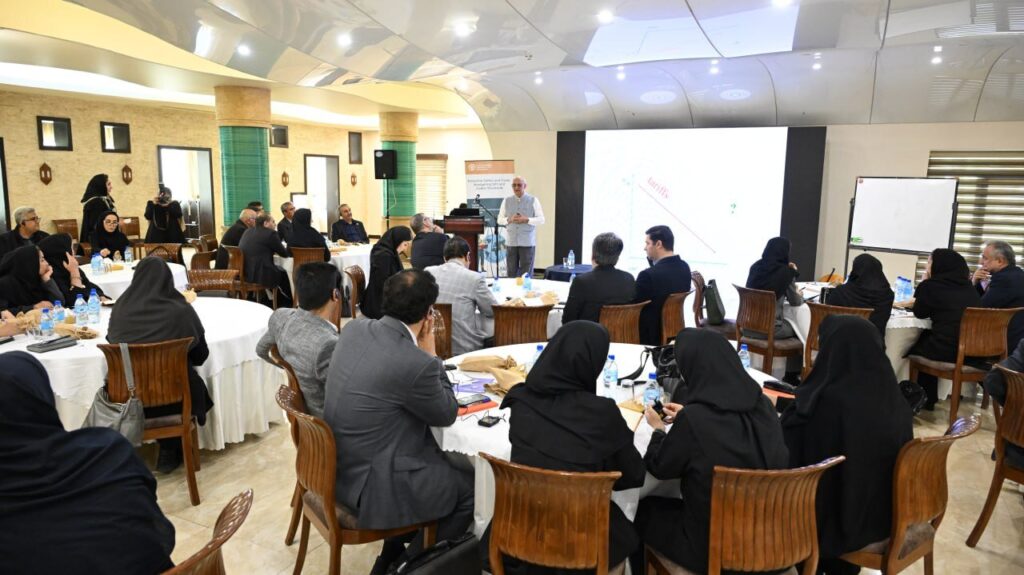Tehran – A specialized workshop entitled “Pistachio Safety and Trade: Navigating Measures and Codex Standards of the Health and Plants” is currently being held in Tehran and will run until April 16th.
Organized by the United Nations Food and Agriculture Organization (FAO) and the Ministry of Agriculture, the event brought together 65 key stakeholders from across the pistachios sector to deepen their knowledge of the international food safety and trade framework, including Codex Alimentarius standards and hygiene and plant overload (SPS) measures. It also focuses on aflatoxin risk management, pesticide residue control, and traceability systems.
Sanjay Dave, FAO International Food Safety Expert, is a globally recognized expert in food safety and trade and leads the workshop.

On behalf of FAO, FAO representative Nazi Tavakoli emphasized the need to meet evolving international food safety standards to maintain and grow Iranian pistachio exports. She pointed to mycotoxin contamination, in particular aflatoxins, as one of the main challenges affected by climatic conditions, agricultural practices, and post-harvest handling and storage methods.
“Iran has made significant progress through promoting excellent agricultural practices, strengthening post-harvest management and strengthening mycotoxin testing infrastructure,” says Tobakoli. “Building capacity and education along the pistachio value chain is important to maintain these improvements.”
The workshop is entitled “Improvement of pistachio production and exports through establishment of integrated product management” in the FAO Technical Cooperation Project.
Started in 2024, the project is designed to enhance integrated pistachio supply chain management focusing on productivity, harvesting, processing, and food safety regulations compliance. By promoting efficient and comprehensive supply chain practices, the project aims to ensure sustainable pistachio production and consumption, ultimately contributing to food and nutrition security, economic growth and strengthening global competitiveness.
Workshops to improve the safety of pistachios, export possibilities
Under the project entitled “Improvement of Pistachio Production and Export by Establishing Integrated Product Management,” FAO has partnered with the Ministry of Agriculture to organize a series of workshops to enhance the safety and export potential of pistachios.
The FAO-led workshop provides a platform for knowledge exchange and technical capacity building, and features the latest scientific insights and risk mitigation strategies for industry stakeholders across the pistachio value chain.
The first workshop of 2025 led by Paola Battarani, FAO’s international pistachio value chain and processing consultant, took place from January 26th to February 5th.
The UN website, released in a press release on March 24, focuses primarily on the development and implementation of a comprehensive mycotoxin management plan coordinated to ensure safer crop production.
FAO has brought together 60 national key stakeholders from the government, bringing together the private sector, including pistachio growers, processors, traders, and academia, to enhance the mycotoxin prevention, detection and control capabilities across the pistachio supply chain. The workshop equips participants with the tools and strategies needed to increase the quality and competitiveness of pistachios in the global pistachio market.
Iran’s pistachio industry plays an important role in the country’s economy and global nut trade as one of the world’s top producers and exporters of high quality pistachios.
Globally, aflatoxins produced by Aspergillus bacteria are affected by environmental conditions, agricultural practices, and post-harvest handling and can develop at various stages of the pistachio supply chain.
To address these challenges, Iran has implemented excellent agricultural practices (gaps), applying strict quality control mechanisms, improved drying and storage, enhanced mycotoxin testing capabilities, and biological control solutions.
mt/mg

